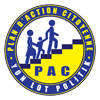Les régimes autoritaires, les fraudeurs fiscaux et les criminels financiers, les trafiquants de drogue, les braconniers d’animaux sauvages et les trafiquants d’armes – tous les responsables des crimes les plus odieux qui se sont tournés vers des sociétés écrans anonymes, sont concernés par cette nouvelle loi anti-corruption.
The U.S. is embracing the most sweeping anti-corruption reforms the country has seen in decades—and will do so with remarkably strong bipartisan support and little fanfare.
Washington DC, samedi 26 décembre 2020 ((rezonodwes.com))–
With veto-proof majorities, Congress recently passed the National Defense Authorization Act, an annual bill generally meant to shore up U.S. defense spending. This year’s iteration folded in a piece of legislation known as the Corporate Transparency Act, which targets something specific: anonymous shell companies, tools that have allowed criminal networks, human rights abusers, and tax evaders around the world to flourish while hiding their financial tracks.
The bill, which is currently awaiting the President’s signature, will require that the true, human owners of companies formed in the U.S. disclose their identities at the point of formation and upon any change—effectively banning anonymous shell companies. Currently, the U.S. is the easiest place in the world to form an anonymous shell company that can be used for money laundering, crime, and corruption.
A multiyear undercover investigation conducted by Global Witness along with extensive reports published by the New York Times have exposed the criminal enterprises that anonymous shell companies enable. In every state, more information is required to get a library card than to form a secret company, and the U.S. is the largest incorporator of companies in the world. The passage of the legislation will be a substantial blow to those who have long abused the secrecy provided by our financial system.
Many issues plaguing our nation and the international community have some connection to anonymous shell companies, which act as the perfect financial getaway vehicles. After all, given how effectively anonymous shell companies mask perpetrators’ finances—authorities often watch their investigations go cold as soon as they run into one of these shell companies—what criminal network wouldn’t take full advantage of all that secrecy?
Those using and abusing anonymous shells to cloak themselves in anonymity run the gamut. From tax cheats hiding their finances and bleeding local coffers dry to drug cartels flooding American streets with opiates turning to anonymous shells to launder their profits, a wide range of criminal forces have used anonymous companies to mask their tracks.
Clamping down on anonymous shell companies won’t solve economic inequality—most of the very rich are people who take advantage of perfectly legal loopholes in the law—but it will increase fairness by making everyone follow the rules that most hard-working honest Americans already follow.
It will also curb a wide variety of international criminality and wrongdoing that currently flows through the American financial system. The people and companies responsible for ongoing environmental devastation around the world often hide their environmental crimes behind anonymous shell companies, like the European company Norsudtimber, which covers up illegal logging activity in the Democratic Republic of the Congo in a web of anonymous shells. So do repressive regimes abroad, from Moscow to Pyongyang to Damascus, who use anonymous shell corporations to avoid sanctions and bankroll their authoritarian efforts.
Environmental criminals, authoritarian regimes, tax evaders and financial criminals, drug traffickers, wildlife poachers, and gun runners—all those responsible for the most heinous crimes have turned to anonymous shell companies. And all too often, given the outsize role America has played in producing anonymous shell companies, the entities at the heart of these criminal networks are produced here in the U.S.
The pending bill outlawing anonymous shell companies in the U.S. will help solve these problems. Not only will it prevent criminal actors from abusing American financial secrecy tools to expand their own illicit empires, but it will also be the biggest anti-corruption step the U.S. has taken in decades.
Moreover, the bill comes with a strong—and gratifying—range of bipartisan support, with both Democratic and Republican legislators cosponsoring the anti-corruption legislation. Even in these polarized times, legislators across the political spectrum realize just how necessary it is to end the abuses of anonymous shell companies.
The Corporate Transparency Act is a testament to how much patriotic Americans still have in common—and how much the U.S. can, and should, lead when it comes to global efforts to tackle corrupt financial practices.

